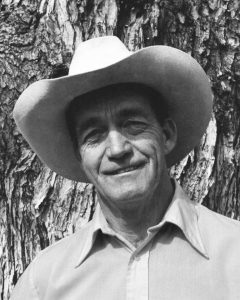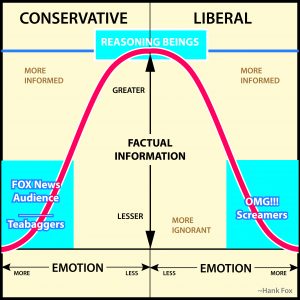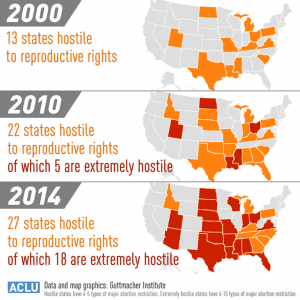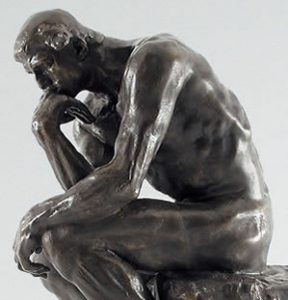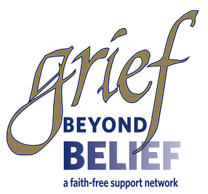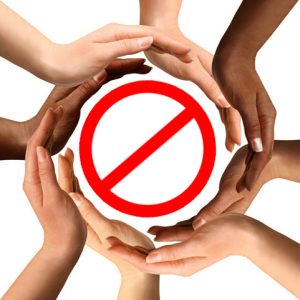 This is my second Charles Barkley-inspired post. You can find the first one here – Assholes and the Umbrella of Safety – but I’ll echo the quote from that first one:
This is my second Charles Barkley-inspired post. You can find the first one here – Assholes and the Umbrella of Safety – but I’ll echo the quote from that first one:
When asked about a report that Seattle Seahawks quarterback Russell Wilson isn’t seen as “black enough” by some of his teammates, the NBA Hall of Famer went on a rant about how “unintelligent” black people believe they have to hold successful African-Americans back.
“For some reason we are brainwashed to think, if you’re not a thug or an idiot, you’re not black enough,” he said in an interview on CBS Philadelphia 94 WIP’s “Afternoons with Anthony Gargano and Rob Ellis.” “If you go to school, make good grades, speak intelligent, and don’t break the law, you’re not a good black person.”
Wrong answers persist. When we “learn” something, either a folk belief at our mother’s knee or a fact from a cutting-edge scientific experiment, we hold onto it. We repeat it to others. We automatically defend it against those who question it. And we pass it on, sometimes for generations. (Achoo! ~Bless you!)
We like to think we’re beyond hanging onto silly stories, wrong answers, but I think we’re still deeply immersed in it. The only way we get beyond such wrong answers is to actively work to disprove them, and that’s not something we’re willing to do with any speed.
Here’s something that seems silly and wrong to me: Our understanding of race.
Let me start explaining that by talking about something else:
Culture
I drive a van for a rehab facility, and I rub shoulders daily with drug and alcohol abusers.
Disclaimer: I learned quickly that most of the people I deal are not the cartoon drug fiends most of us would imagine, but rather ordinary, average people with this … problem. A housewife with anxiety issues finds herself dependent on Xanax. A middle-aged professional electrician develops a drinking problem that begins to affect his work. A young man has a motorcycle accident, and by the time he’s recovered, is addicted to painkillers. A suburban middle-class teenager dares to try heroin with friends, and soon finds himself with a $300 a week habit.
But among this population of drug users, I occasionally meet up with some who are NOT just “ordinary average people.” Some of them are very different from anything in my experience.
Making conversation with a client one time, I asked what he did for a living. He waved the question off with casual disdain. “Oh, I’ve never worked a day in my life.” He looked to be in his 40s. I kept any reaction to myself, but inside I was gasping. How can you not work? Yes, he might have had some invisible condition, mental or physical, that prevented him from working, but the dismissive reaction to the IDEA of having a job was something I’d never come across.
A 23-year-old man shared that he had 5 children. “How many kids do you have?” he asked me. “None!” I said, to his astonishment. “How can you not have any kids??” I joked “Well, you used up my share.” Another client casually confided that he had 12 children by three women, none of whom he married, and none of whom – kids or women either one – he lived with.
On one trip up from New York City, I stopped at a roadside rest stop to give the clients a bathroom break. The rest stop had a McDonald’s, one of those with the drink fountain out where customers can serve themselves. I watched one of the clients, a young woman, beg a soda cup from the girl at the counter, so she could get some water. The counter girl gave her one of the small water cups at first, but the client asked for a larger one. “Oh, please, can I get one of the bigger cups? Because I’m really thirsty and I can only be here a few minutes!”
Back in the van, I listened to her telling the tale of how she filled the cup up with ice and soda, and the entire group had a big laugh at how she’d gotten a free soda.
This wasn’t a huge crime, just considering the value of the property involved. The cost of the cup and soda – mostly water and sugar, after all – was probably a few pennies.
But it was a pretty profound moral crime, in my view, in that one person did a generous, compassionate act for another, and that other instantaneously and automatically repaid the generosity with theft. And then laughed about it, and encouraged others to laugh. She could conceivably have gotten the counter girl fired.
To put it in blunter terms, she fucked over somebody who did her a favor, and this was not only okay with her, it was FUNNY.
Culture vs. Race
Can you tell the race of any of the people in these stories? No, you can’t.
If you come from the American South as I do – a place and a culture that has deeply entrenched views about race – the unmarried man with 12 kids will probably map out to “black man” in your head, but in fact there is nothing in the story – or in real life – that says it must be.
The color of any of the people described above is irrelevant to the REAL difference between them and me. The real difference is one of culture. Their cultures teach them certain values that are different from the values of my culture, or any culture I’ve lived in.
It’s a common social trope that all cultures are equally to be respected, but I don’t feel that way at all. For instance: Any culture that says women should not have full rights and equality with men (and vice versa), that’s an inferior culture, in my view.
The young woman who laughed about the free soda, I can say without doubt that she comes not just from a different culture, but a lesser culture, a culture that does not deserve equal respect. Any culture that encourages casual theft, especially from someone who helps you, is inferior to my culture, which says you NEVER do that. If you disagree, I think you’re just wrong, and it drastically lowers my respect for you.
I say “culture” in these cases rather than individual values for two reasons: One, the value demonstrated was casual and confident, obviously something of long familiarity and without any qualms of conscience. And two, even if I’m misjudging the individuals described, I’ve been in this business long enough to know the values demonstrated are out there in a cultural sense. They are common among large numbers of people, accepted and even admired, and definitely propagated – taught – from one person to another. There IS a culture of “fuck over other people and laugh about it” out there.
Let me toss another issue of culture at you. When famine in Ireland sent great numbers of Irish immigrants swarming to the United States, their reception was not uniformly warm. I’ve seen pictures of window signs that said “Help Wanted – No Irish Need Apply.”
Here’s British Prime Minister Benjamin Disraeli from 1836 :
The Irish hate our order, our civilization, our enterprising industry, our pure religion. This wild, reckless, indolent, uncertain and superstitious race have no sympathy with the English character. Their ideal of human felicity is an alternation of clannish broils and coarse idolatry. Their history describes an unbroken circle of bigotry and blood.
Anyone steeped in the idea of prejudice based solely on race would find anti-Irish sentiment mystifying. Reading about it in 8th grade World History, I remember wondering “How could anyone not like Irish people? They’re nice. Besides, how could you even tell they were Irish? They’re just another type of white people, aren’t they?”
The answer must be that you could tell they were Irish because of their culture. Other than red hair or the occasional wearing of green, we the U.S. today have no idea whether someone is Irish, but back then it must have been blatantly obvious, and in ways more profound than mere accent. Work habits, dress, accent, religion, family size, the part of town they lived in, ‘clannish broils’ … plenty of indicators that made it easy to pick them out from the larger population of white people, and discriminate against them because of it. White skin and all, you could probably have spotted an Irishman, or an Irish family, a block away.
What was different about them? Culture.
What changed so that they are today invisible in the social larger pool? Culture. They gradually adapted to the American overculture – they acculturated – and became ordinary Americans.
Race
Here’s something I know about me: I’m not white. I’m not. I’m pink and tan and even a little bit blue and sort-of-yellowish in places. My ancestry is mostly (there was this family story) or wholly Caucasian, but I’m not “white.”
In fact, there are no “white” people. (If you bring up mimes, I’ll have to hurt you.) There just aren’t. NONE OF US IS WHITE.
Likewise, I doubt there are any “black” people. There are a lot of different shades of brown, is what there are. NONE OF US IS BLACK.
Look at the “black” people around you, and note the variety of skin tones. Line up a random bunch of humans from New York City and you’ll notice that some of the “black” people are lighter-skinned than some of the “white” people. (And yes, I know I’m not the first to point this out; hopefully you’ll hear it here without the smug tone often associated with it.)
In deference to the difficulty of relating to skin color, plenty of people would talk about Black Culture rather than just Black People. But they’d still likely be talking solely about black people, in that black culture relates to “white” people only in the broad sense of culture and not in the specific sense of individuals. No matter how many “black” cultural attributes a “white” kid adopts, he never becomes “black” … to either side of the color divide. The closest he might come is the unflattering “wigger.” If he checked “Black” on the Race question on some official form – say to get an affirmative-action-based scholarship – he might even face prosecution.
In common usage, “black” is therefore probably not culture. It is color. Race.
And yet, as I said before, there aren’t any black people. Even scientists agree: “Race” does not exist in any definable sense. It’s a pleasant – or unpleasant – social fantasy.
What we’re really doing when we discuss race is attempting to figure out which of the people around us are “my people” and which are “those people.” But the answer to the question of how you do that is CULTURE. Not race. Not color. “My people” – your people – are the ones who share some large part of your values, customs, aspirations and view of life.
There are plenty of “ black” people with whom I have more in common than certain “white” people. Considering the fact that I dropped out of college and have done blue collar work most of my life, any particular “black” man stands a chance of being my better in education and career, income and sophistication. I not only consider an educated “black” man or woman my equal, I go farther in that I know any social inequality between us is likely because *I* don’t measure up to THEM. If I ever managed to meet them, I doubt I would offer a high-five or a fist bump to Barack Obama, Neil deGrasse Tyson or Morgan Freeman. Lurking in my mind is the feeling that I don’t deserve to be taking up the time of these accomplished, admirable men.
And yet I consider them “my” people … because self-respect, knowledge, achievement, honesty, decency, a reverence for reason and science, so many other social and personal traits of they and the people like them, are what my people – the sociocultural group I most identify with – does.
My Somewhat Sloppy Conclusion
There should be a punchy ending here that ties up what I’m saying into one simple, understandable package. But I’m finding it difficult to end this, because … well:
One of the ways I write is to flow with my main theme along the path that maps itself out before me as I write, but to fairly often space down far below the main body of text and add in side thoughts as they occur to me. Later I read through them and see if they fit into the main body, and then try to insert them where they seem to go.
But in thinking about this subject – race, color and culture – it continues to open out in front of me, illuminating and disturbing me at every turn. I realize no single essay can cover the subject. Considering the wrong answer we’ve been living with, and the cost to everybody suffering under it for so long, it’s obvious that a book – or a lifetime – would be too short to deal with it fairly.
There is an infinite amount more that could be said. (And I know it. I hope the fact that I’m only saying this little bit of it appears to readers more as “incomplete” than as “wrong.” In thinking about this huge subject, you have to start somewhere, and this was my Somewhere.)
For instance:
With the majority of us still keying on skin color, every “black” person in America lives in a state of siege – constant mental and sometimes even physical abuse – by “white” people. It involves cops and courts at the extreme end, but the near end includes co-workers, store clerks, teachers, government, even people just walking by on the sidewalk … and hundreds of things I know I can’t even imagine.
There has to be an entire personality-shaping stage every “black” kid goes through, a minute-to-minute, years-long dismay that amounts to “What the fuck have I done to deserve this?”
Surviving that and staying sane is … well, it’s not something I think I would have gotten through. Pondering it, I have to wonder if pretty much ALL of the “black” people I know aren’t better people than I am. Like human icebergs, I see only the top part of them – the ordinary guy / nice lady – but underneath is an immense mass of forbearance and patience and strength of character that I never had to develop, making me a simple-minded lightweight in comparison.
And for instance:
This generational siege has been a powerful shaper of a black culture (notice I say “a” and not “the”), such that one key attribute of it is the understandable Not White: “If they’re going to treat us like enemies, fuck it, we’re going to BE enemies – to every value they hold.”
Barkley and others like him – trying to live their lives as best they can – suffer not only the siege from the “white” side of the thing, but this other siege from that “black” side: “After all this has cost us, how can you let yourself be one of THEM? How can you not be Not White?”
Paraphrasing Barkley, those who catch crap for not being “black enough” have greater values and aspirations than mere blackness, the desire to operate on a broader social landscape than that bounded by skin color, or a culture based on it. Barkley asserts that the stereotypical and limiting street culture can’t work for him, nor for so many others who want a larger landscape on which to live their lives. In his success, he’s saying he won’t be limited by “white” people, but he’s also saying he won’t be limited by “black” ones.
In the end, my only conclusion is that “black” and “white” are huge mistakes. EVERY discussion of race starts from this mistaken first principle. A racial view of the people around us is false, incomplete and damaging. What separates us, or joins us, is culture.
Culture is not race. It has nothing to do with race. Race is something you’re born with, culture is something you DO. It’s that body of values, attitudes and behaviors you were either taught as a child or adopted somewhere along the way and now practice in daily life.
Realizing all this has been a final illumination for me in how to think about and treat other people. Having grown up in the Deep South and learned racism from my earliest conscious moment, it’s taken me way, way too long to get to the point where I begin to be able to see people as people, and not as races or colors. I like to think I’m there at last.
One more side issue comes to mind, something that feels both disturbing to realize and necessary to say:
There is a ruthless fairness within giving up the idea of race, something that argues against my staunch liberal tendency to believe that in every disagreement between a “black” person and a “white” one, it must be the “white” one who is in the wrong, that in every news story of “black man and cops,” it must be the cops who are the source of the problem.
Instead, it turns out I’m going to have to THINK about every situation and instance, to evaluate the thing based on known facts, and not racial sway. (Without, of course, losing sight of the fact that plenty of “white” people and cops – and the system they serve – really can be viciously racist.)
Hopefully I now have one more good mental tool for doing that.
 I became an atheist, and joined in with others, because I wanted to belong to a Community of Reason. This current (and lengthy past!) shit I see going on with the flaming, mob targeting, jargon-slinging, code-wording, character assassination, labeling and pigeonholing — I hate being even on the edges of it, because the people doing it are as stupid and evil in their own way as the righty-religious community I escaped from. Waaaaay too many of the people I once thought were members of my Community of Reason are instead flaming, vicious assholes, working to hurt or silence people — sometimes relative innocents — for their own nasty pleasure. Or for blog hits (money), which is just as bad.
I became an atheist, and joined in with others, because I wanted to belong to a Community of Reason. This current (and lengthy past!) shit I see going on with the flaming, mob targeting, jargon-slinging, code-wording, character assassination, labeling and pigeonholing — I hate being even on the edges of it, because the people doing it are as stupid and evil in their own way as the righty-religious community I escaped from. Waaaaay too many of the people I once thought were members of my Community of Reason are instead flaming, vicious assholes, working to hurt or silence people — sometimes relative innocents — for their own nasty pleasure. Or for blog hits (money), which is just as bad.
